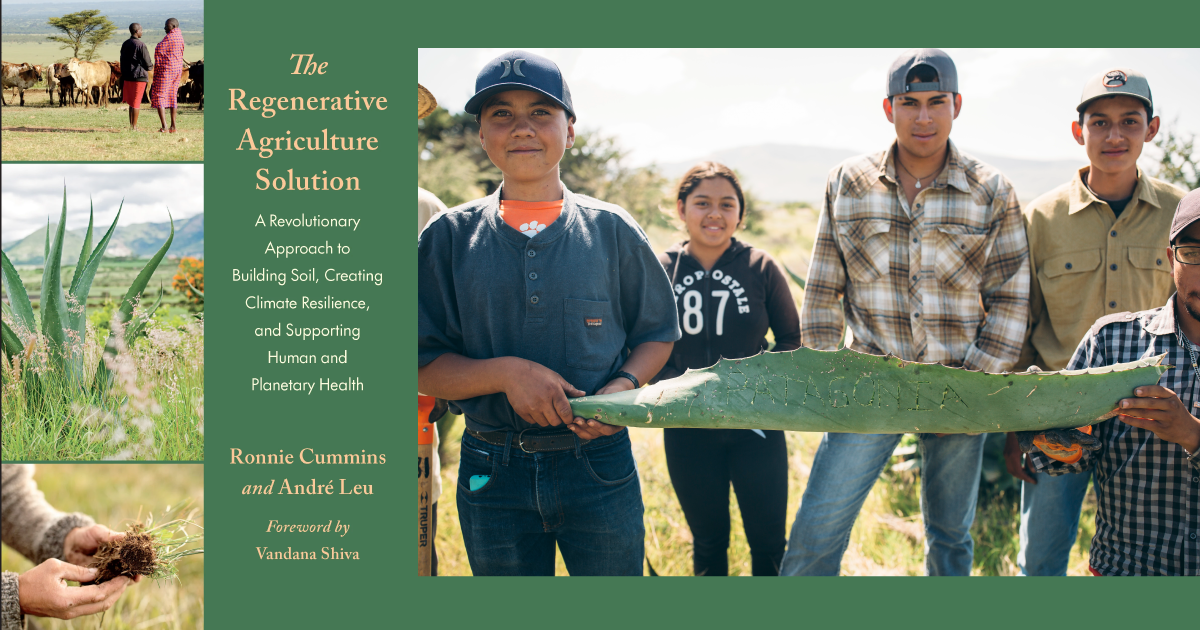
NEW BOOK
The Regenerative Agriculture Solution: A Revolutionary Approach to Building Soil, Creating Climate Resilience, and Supporting Human and Planetary Health
By Ronnie Cummins & André Leu, Foreword by Vandana Shiva, Chelsea Green Publishing Company:
Is it possible that the solution to the global climate emergency lies in a “waste” agricultural product? Two brothers from a small town in Mexico are proving just that. The best-kept secret in the world today is that solutions to some of our most pressing issues–food insecurity, deforestation, overgrazing, water scarcity, rural poverty, forced migration–lies in adopting, improving, and scaling up organic and regenerative agriculture best practices.
The Regenerative Agriculture Solution tells the story of how two brothers–Jose and Gilberto Flores–are at the leading edge of this approach, pioneering the use of the previously discarded leaves of the prodigious agave plant to regenerate agricultural soils, reduce erosion, and improve water capture. Amazingly, their methods also benefit their local economy, creating jobs by producing an inexpensive livestock feed supplement that could grow into a multi-billion-dollar industry and change the face of agriculture, animal husbandry, ecosystem restoration, and climate change forever. When Ronnie Cummins, the cofounder of Organic Consumer Association (OCA) and Regeneration International, met the Flores brothers in 2019 and witnessed their revolutionary agave agroforestry system, he knew they were onto something important. Cummins had spent decades studying the potential and pitfalls of organic and regenerative agriculture and knew best practices when he saw them. The scientific data was even more convincing, suggesting that the project–and others like it–could revolutionize the way we understand the climate catastrophe.
The Regenerative Agriculture Solution is an agricultural, agroforestry, and public policy blueprint, as well as a call to action for organic and regenerative farmers, ranchers, and land managers around the world.
So that we can get this insightful book out far and wide, we are recommending the Amazon link as pre-orders result in a larger multiplier for the initial book order.
Chelsea Green Publishing Company is also an option to pre-order here
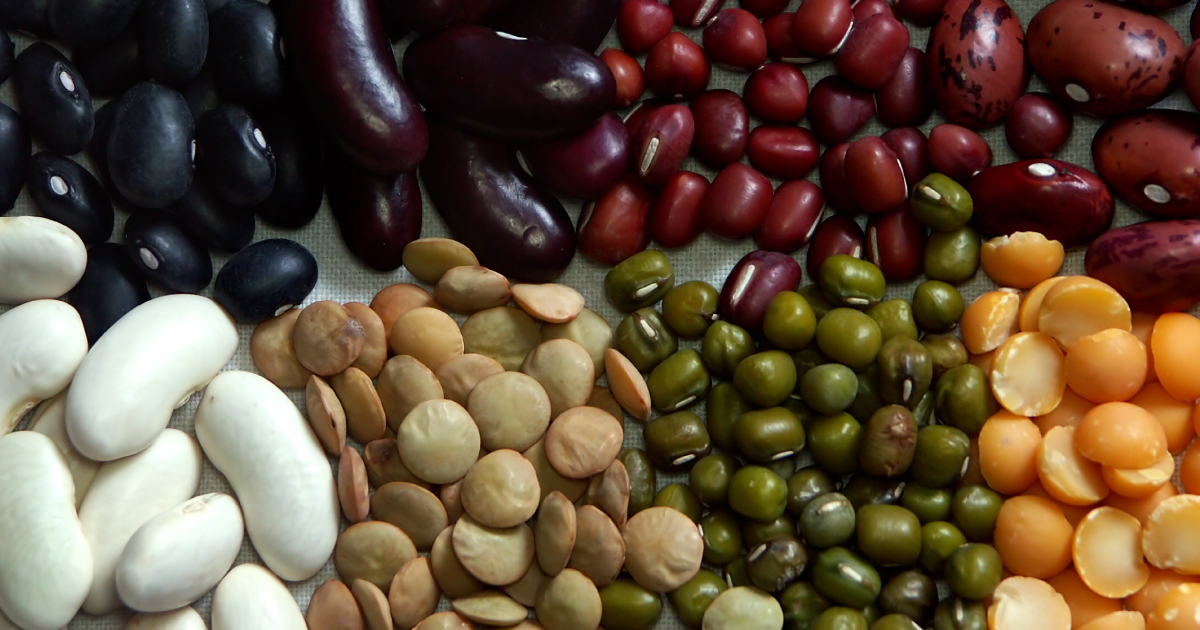
HEALTHY LIVING
Six Kitchen Staples That Don’t Go Bad for Years
Analysis by Dr. Joseph Mercola:
“STORY-AT-A-GLANCE
- Dried beans, mustard, white vinegar and salt are examples of foods that will stay fresh in your pantry for years
- One concern with beans is that they contain lectins, which are sugar-binding plant proteins that attach to cell membranes that can lead to weight gain or health problems. If you choose to eat beans, be sure to prepare and cook them properly
- Honey and vanilla extract are other kitchen staples with years-long shelf lives
Unless you carefully plan your meals, it’s easy to overbuy fresh foods and end up having them spoil before use. There are, however, a number of healthy staples you can stock up on in your kitchen without worrying about spoilage, as they keep for a long time — even years.”
Read about these foods and how some foods are good long past their expiration date

PROTECT THE POLLINATORS
More Retailers Are Requiring Produce To Be Certified as Pollinator-Friendly
By Cameron Newell & Eric Mader, The Xerces Society:
“In a big win for conservation, Kroger, one of the top 5 food retailers in the USA, will now require all fresh produce suppliers to use more pollinator-friendly practices by 2030! With similar recent commitments by Walmart and Giant Eagle, more and more major companies are making an effort to protect pollinators.
Under the new rules, food suppliers must implement practices designed to reduce pesticide use, called integrated pest management (IPM). To ensure that IPM practices are being used correctly, suppliers also need to achieve one of the biodiversity-focused certifications picked by Kroger, including Xerces’ Bee Better Certified!
Bee Better Certified sets the standard for biodiversity conservation in agriculture
Bee Better Certified is the first third-party certification created specifically for pollinator health and biodiversity on farms, and is still the most rigorous. To qualify, farms need to build and protect pollinator habitat, use sustainable agricultural practices, and reduce pesticide use. The Bee Better label highlights food coming from farms that follow the highest standard in pollinator conservation, giving farmers a way to stand out from competitor’s products.”
Read more about how IPM and biodiversity certifications help create a better agriculture system

PLANTING PEACE
Waiting Would Be ‘Death Sentence’ for Millions on Brink of Starvation
UN News reports:
“War is pushing millions of people to the brink of starvation. Only technicalities prevent famines from being declared, as people are already dying of hunger,” said Mr. Griffiths.
“Waiting for an official declaration of famine before acting would be a death sentence for hundreds of thousands of people and a moral outrage,” he added.
As the G7 major economies prepare to meet on Thursday, Mr. Griffiths is calling on leaders in the most developed nations to immediately use their political leverage and financial resources to support aid organizations in their efforts to reach all those in need.
The G7, consists of Canada, France, Germany, Italy, Japan, the United Kingdom and the United States. The UN Humanitarian Affairs chief said they should wield their influence to stop such a ‘preventable scourge’ from taking the lives of innocent civilians.
‘Choice between inaction and oblivion’
In the latest Hunger Hotspots report, the Food and Agriculture Organization (FAO) and the World Food Programme (WFP) are warning that acute food insecurity is set to worsen from June to October 2024 in 18 hunger hotspots.
While urgent attention is required in several hotspots where starvation looms – including Haiti, Mali, and South Sudan – immediate action is especially critical in war-ravaged Gaza and Sudan.
“Nowhere is the choice between inaction and oblivion so clear as in Gaza and Sudan,” said Mr. Griffiths.
Half the population of Gaza, almost one million people, is expected to face death and starvation by the middle of July, according to the UN Relief Chief.”
TAKE ACTION: Tell Congress! No More Money for War!
Share your vision for peace with a FREE Planting Peace “Negotiate Don’t Escalate” bumper sticker!

ENVIRONMENTAL JUSTICE
Building Bridges in the Midst of Conflict: 12 Organizations Working for Israel-Palestine Peace
By Optimist Daily:
“There is a glimmer of hope in the heart of one of the world’s longest and most complex wars, yet it often goes unrecognized. While the sad reality of violence and division dominates the media, countless grassroots organizations are working tirelessly to bring peace and reconciliation to the Israel-Palestine conflict.
These are the region’s hidden heroes, made up of people who think that even at the darkest of times, peace is still attainable.
Let us cast a light on 12 such organizations and their outstanding work.
These 12 organizations serve as beacons of light in the ongoing Israel-Palestine conflict, working relentlessly to bridge gaps and pave the path for a peaceful future. While peace may appear distant amid the chaos, the passion and perseverance of these grassroots organizations remind us that the human spirit yearns for reconciliation and harmony even in the darkest times.
As they continue their work, they provide a ray of hope that peace is not an unachievable ideal, but rather an attainable reality.”

TAKE ACTION
Carbon Markets, Geoengineering and Other False Solutions
Tamra Gilbertson, Indigenous Environmental Network, and Coraina de la Plaza, Hands Off Mother Earth Alliance, Geoengineering Monitor:
“Outside the UNFCCC negotiating rooms, we are already witnessing how carbon markets are acting as a magnet for other false climate solutions like geoengineering, which refers to large-scale technological interventions to manipulate the Earth’s oceans, land and atmosphere, to “fix” the climate. Geoengineering schemes range from spraying aerosols into the stratosphere to block sunlight from reaching the Earth (Solar Radiation Management), to sucking carbon dioxide out of the atmosphere or capturing it from industrial pollution sites (Carbon Dioxide Removal (CDR)).
Under current proposals, many CDR projects would be eligible for support under Article 6.4 and, in an attempt to force the large-scale roll-out of geoengineering technologies, industry and some governments are lobbying hard to include as many schemes as possible in the new carbon market structures.
Using carbon credits generated by CDR projects to offset emissions in other sectors would undermine the importance of phasing out fossil fuels and it is no surprise that this is being pushed by the fossil fuel industry in order to allow it to continue polluting. One of the many things that carbon markets and geoengineering have in common is that they are often portrayed as viable solutions to the climate crisis, but are in fact just a facade that is used to divert attention away from the urgent systemic changes that are required.”
#SayNoToSolarGeo! Blocking the Sun Is NOT a Climate Solution!
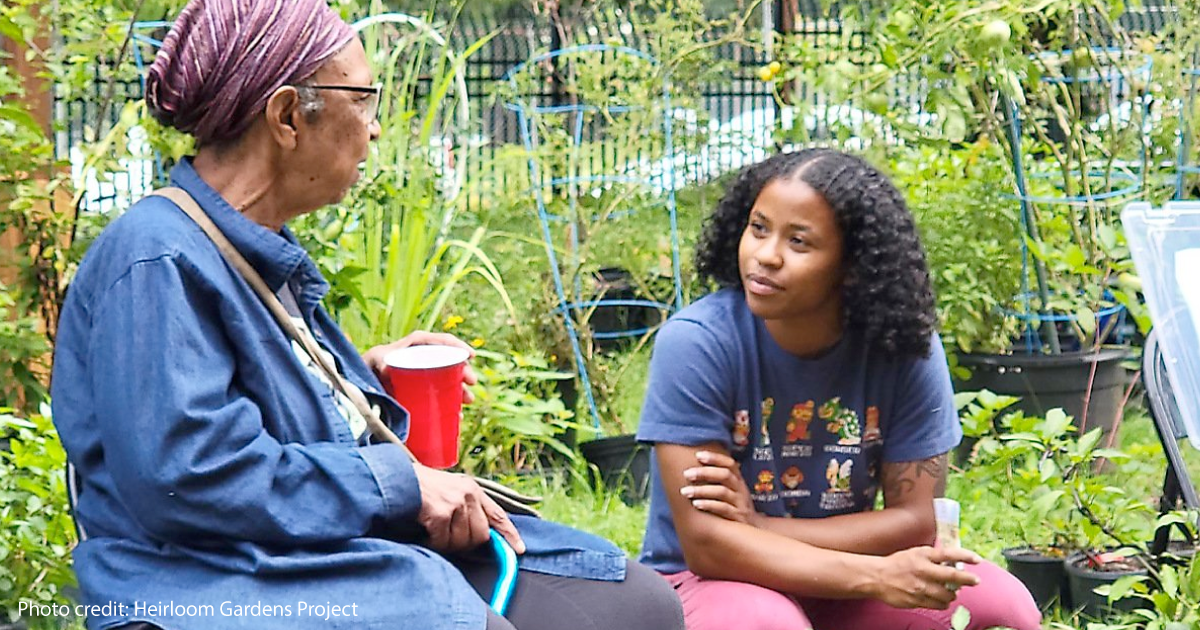
HERILOOM GARDENS PROJECT
Oral History Project Preserves Black and Indigenous Food Traditions
Liz Susman Karp writes for Civil Eats:
“Traveling through Appalachia, Tessa Desmond and her team kept hearing the seed stories. As interviewers with the Heirloom Gardens Oral History Project (HGP), they spent more than two months talking to home gardeners, cooks, farmers and local historians, learning about seeds that had become part of family lore: the fistful of crowder peas discovered in a late grandmother’s bible, a place of importance to her, or the rare collard greens seeds now named Nellie Taylor collards, which were offered by her son-in law, who plucked them from the freezer where they had been stored in a plastic bag for 30 years since her passing.
He had overheard Desmond discussing seeds with his neighbor. “People have hung on to seeds even when they aren’t actively planting and tending them,” says Desmond. ‘They hold memories and are cherished as story and timekeeping objects.’
Agriculture has been a way of life and a source of meaning and pride for Black and Indigenous people for centuries, shaping rituals, beliefs, and traditions. Slavery and colonialism exploited their agricultural knowledge and shattered their lives. The heirloom gardens project, a collaboration between Princeton University, Spelman College’s Food Studies program, and Ujamaa Cooperative Farming Alliance, aims to memorialize their long-held expertise and culturally meaningful foods.”
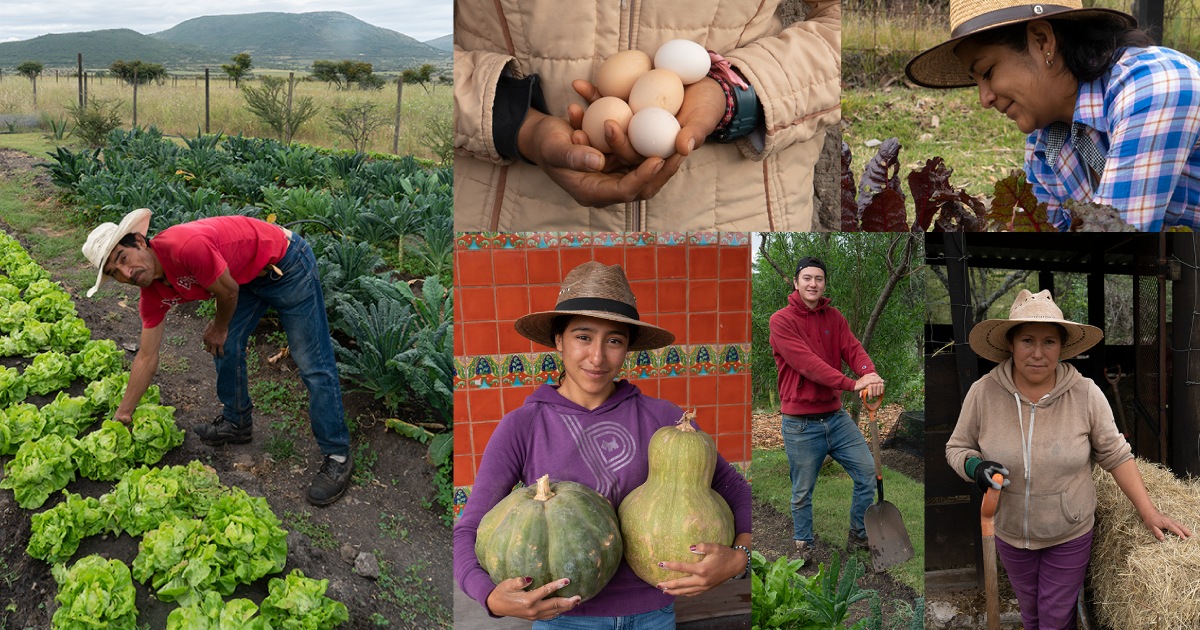
REGENERATION INTERNATIONAL
Organic Certification as the Basis of Regenerative Agriculture?
By Andre Leu, International Director, Regeneration International:
There are discussions that organic certification should be mandated as the starting point of regenerative agriculture.
Our definition of Regenerative Agriculture:
Regenerative systems improve the environment, soil, plants, animal welfare, health, and communities.
The opposite of Regenerative is Degenerative
This is an essential distinction in determining practices that are not regenerative.
Regeneration International has consistently asserted that the four principles of organic agriculture are essential in determining whether practices are regenerative or degenerative.
Health
Organic agriculture should sustain and enhance the health of soil, plant, animal, human and planet as one and indivisible.
Ecology
Organic agriculture should be based on living ecological systems and cycles, work with them, emulate them and help sustain them.
Fairness
Organic agriculture should build on relationships that ensure fairness with regard to the common environment and life opportunities.
Care
Organic agriculture should be managed in a precautionary and responsible manner to protect the health and well-being of current and future generations and the environment.
Agricultural systems that use degenerative practices and inputs that damage the environment, soil, health, genes, and communities and involve animal cruelty are not regenerative.
Synthetic toxic pesticides, synthetic water-soluble fertilizers, genetically modified organisms, confined animal feeding operations, exploitive marketing and wage systems, destructive tillage systems, and clearing high-value ecosystems are examples of degenerative practices. Such systems must be called degenerative agriculture to stop greenwashing and hijacking.

SUPPORT OCA & RI
Transforming Our Degenerative Food, Farming and Land Use Practices
OCA is a network of people who have accepted the responsibility to do something to reject the corporate takeover of our food and medicine by using their voices to change the status quo whether it be on the local or global level. We have seen how communities working together can transform, starting at the local and regional level, our degenerative food, farming, energy, health care, and land use practices.
Together we can move beyond corporate disinformation and censorship to share the best practices of organic food, natural health, nutrition, and integrative medicine. We can clean up our toxic environment and toxic politics. We can move from elite technocratic domination to participatory democracy.
Those of us living in the USA have a particular responsibility to address the problems that stem from our corporate controlled government policies which adversely impact the entire world. At the same time we work locally and regionally, we understand how the corporate control of our government on the federal level impacts the entire world. We take our responsibility as citizens seriously and have not given up on the idea that in unison we have the power to change the world for the better.
This is the time to speak our truth; together we are the people we have been waiting for!
With your support, OCA will continue to work side by side with you. We believe that we, the global grassroots, are at a major turning point in history.
Please consider a donation to help us increase our ability to give citizens the opportunity to take action when needed, as well as step up our truth-telling and educational efforts.
Make a tax-deductible donation to Organic Consumers Association, a 501(c)(3) nonprofit
Make a tax-deductible donation to Regeneration International, our international sister organization
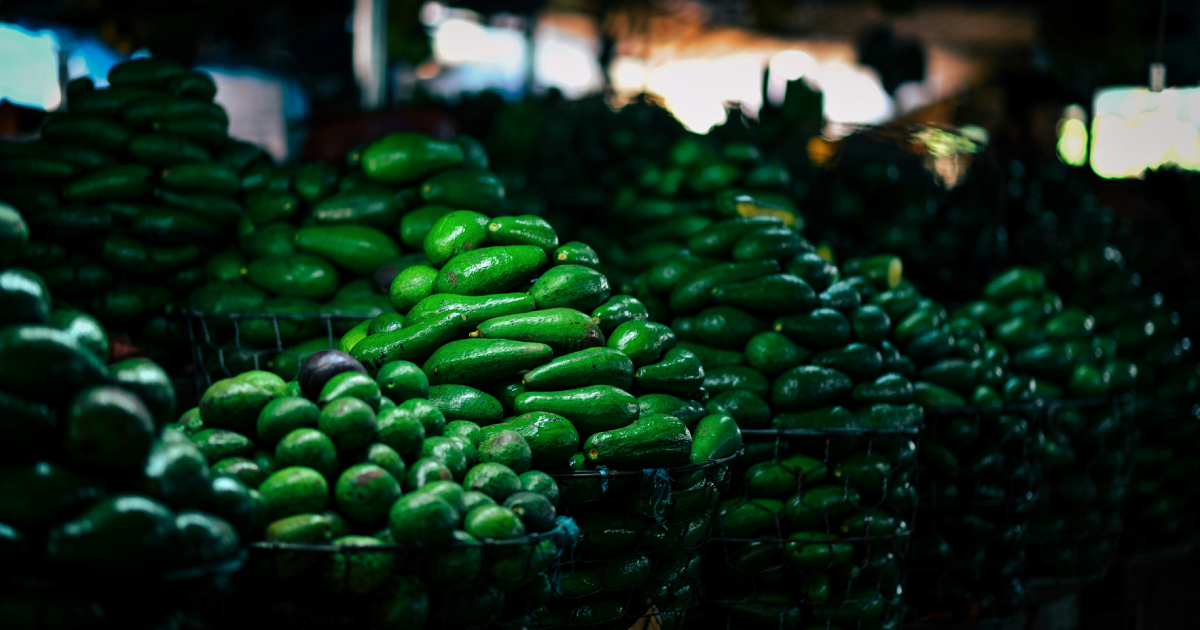
THE DARK SIDE OF AVOCADOS
Inside Mexico’s Anti-Avocado Militias
By Alexander Sammon, The Guardian:
“You don’t have to be very smart to figure out where the water is going,” said Noemi Mondragon, a local farmer. The unfinished pipeline seemed to be pointed toward a new 200-hectare avocado grove. “People say that the avocado is the devil,” Noemi told me. “That isn’t true. There are ways to raise it sustainably.” As she saw it, the biggest problem with the avocado was that “it brought greed, which brings ambition, which brings scarcity”. Water levels at the dam had already reached new lows. “Look at the size of the pipe,” she added. “If they get that water, the dam will be empty in two weeks.”
The farmers told me that they had scared off the construction crew the day before Christmas, with a shovel-wielding Marilu at the front. Staring down a menacing foreman and a line of tractors, she told me she’d filled in the basin where the pipe was being laid. Noemi and other neighbors joined, shoulder to shoulder, until the group grew large enough to drive the workers away.
Given the exceptional amount of avocado-related violence in the region, the story struck me as surprisingly tame. Earlier that year, a prominent anti-avocado activist had been kidnapped and beaten in another part of the state. Months later, I expressed some confusion about the account, and found out that the farmers had also been stockpiling guns, many of which were illegal. They’d left that detail out.”

HEALTH
Want a Healthier Gut? 12 Probiotic Foods to Add to Your Diet
Michelle Honeyager, CNET:
“So much of your health starts with your diet. After all, your gut health is connected to your overall well-being, including aspects you might not expect, such as heart health and mental health. So, if you’re looking to boost your health, consulting your doctor about the food you eat — along with the benefits of probiotic foods — is one of the best places to start.
You’ve probably heard of probiotics and how essential they are for a healthy gut. These living microorganisms can help promote the growth of good bacteria in your stomach. Plus, they have been associated with reducing depression, promoting heart health, boosting the immune system and improving skin. One theory on why probiotic foods improve our overall health is that good gut bacteria can help promote a healthy metabolism, which can prevent a wide array of disorders, such as obesity and diabetes.
Best probiotic foods for a healthy gut
If you want more probiotics in your diet, below are 12 excellent probiotic foods. In addition to these foods, you might also try probiotic supplements. Look for labeling that reads, “contains live cultures” or “contains active cultures” in these common probiotic foods.
- Yogurt
- Kimchi
- Pickles
- Sourdough
- Kefir
- Kombucha
- Sauerkraut
- Miso soup
- Apple cider vinegar
- Some cheese
- Pickled vegetables”
Learn about the beneficial properties of these amazing live foods

LITTLE BYTES
Other Essential Reading and Videos for the Week
Is the FDA Really in Our Corner? The Hidden Truth About Artificial Food Colors
Why You Should Consider Adding Rocks To Your Birdbath
Watch: Experts Predict Mexico City Will Run out of Water in Weeks
Billion Agave Project: Mexico Devises Revolutionary Method To Reverse Semiarid Land Degradation
Fasting Supercharges the Cancer-Killing Properties of Immune Cells
Tell Wholly Guacamole: Stop Deforestation!
Birding Your Way to Well-Being
Waste Not, Want Not: The Costly Aftermath of Michigan’s Raid on Nourish Cooperative
Do This to Stop Anxiety, Rumination, and Indecision
Danone Forms a Quartet To Create Biotechnology Platform
Sh*t Storms: Factory Farm Pollution, Hurricanes, and Climate Change
US Health Care Spending Expected to Outpace Economic Growth Over Next Decade
U.S. Surgeon General Proposes Warning Labels for Social Media






